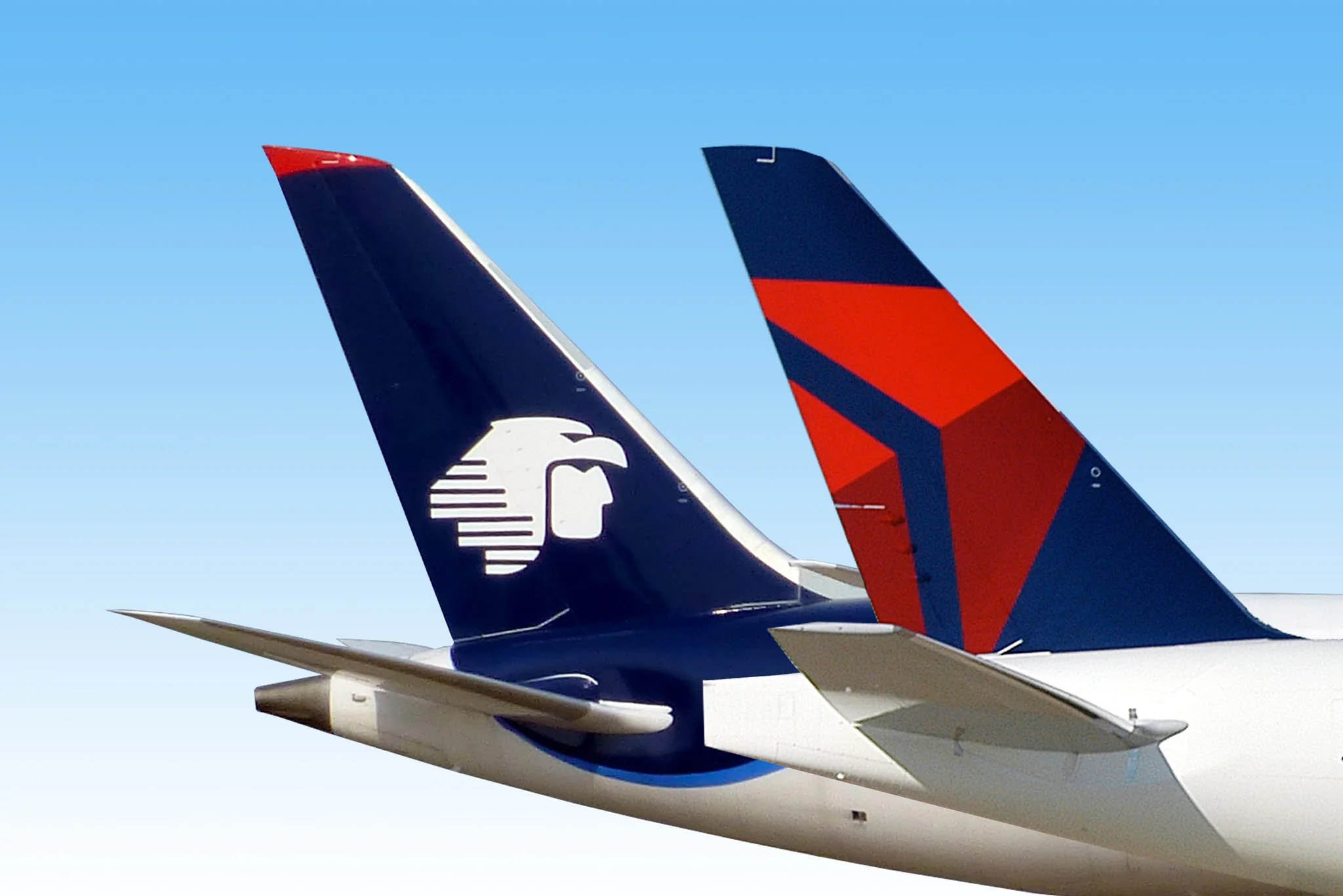
The US Department of Transportation (DOT) has declined to extend the antitrust immunity granted to Delta Air Lines and Aeromexico for their transborder operations between the USA and Mexico. At the root of this is concerns that the Mexican government is engaging in anti-competitive practices at Mexico City’s busiest airport.
Aeromexico – Delta Must Scale Back Partnership After US Ends Antitrust Immunity
Delta and Aeromexico are SkyTeam partners and, more importantly, joint-venture partners on transborder flights between the USA and Mexico. Delta even owns a 20% stake in Aeromexico. In 2016, two carriers were granted antitrust immunity to coordinate fares and schedules on transborder flights.
That agreement is now up for renewal and DOT has declined to extend it. The issue, per se, is neither Delta or Aeromexico. Rather, it is Mexico City’s Juarez International Airport (MEX) and how the government of Mexico manages that critical airport.
Recent actions taken by the Government of Mexico have in effect removed the necessary precondition for the consideration of an antitrust immunity (ATI) application or continuation of an existing immunized joint venture.
Actions include:
- An “opaque” and “anti-competitive” slot allocation regime at MEX that leaves Aeromexico, the largest slot holder, as the primary beneficiary
- This has enabled Aeromexico to “underutilize its slot portfolio while simultaneously keeping slots out of the hands of competitors”
- The capacity at MEX has been reduced over the last three IATA traffic seasons, to “the detriment of both current air carriers and potential new entrants”
- The Mexican Government has premised these actions on the need to undertake significant renovation of MEX because of “saturation levels” at the airport; however, the Mexican Government has more recently conceded that “no such construction plans exist”
- Banning on all cargo operations at MEX
Not mentioned by DOT: the impact of the government’s push to build up Felipe Angeles International Airport (NLU) in Mexico City and how this has led to determinantal pushes to curb service to the far-more-convenient MEX Airport.
As a result, ATI will end on October 26, 2024.
This Decision Does Not End Delta – Aeromexico Partnership
While Delta and Aeromexico will no longer be able to coordinate fares and schedules, the partnership will remain. Expect reciprocal earnings and lounge benefits to continue. This order also does not preclude codeshare flights.
As a potential benefit to consumers, Eye Of The Flyer notes that Aeromexico may once again be able to sell tickets from the US to Europe via Mexico, something that has not been permitted since the carrier entered bankruptcy protection in 2021 (it exited bankruptcy protection in late 2022).
Allegiant – Viva Aerobus Also Impacted
US budget carrier Allegiant and Mexican budget carrier Viva Aerobus were also denied their DOT bid for antitrust immunity on similar concerns over protectionism in Mexican markets.
CONCLUSION
Aeromexico and Delta must scale back their partnership, ending coordination on routes and pricing on transborder routes. The primary concern is less the two carriers than how the Mexican government has blocked MEX from competition and new market entrants.
Delta and Aeromexico can now argue against the DOT “Order to Show Cause.” However, I expect this order to stand until the Mexican government initiates major changes concerning MEX.




This is a good move. JetBlue got kicked out of MEX a few years ago because they wouldn’t pay bribes. Enough is enough. Mexico itself has done way down the path of corruption.
AM business class pricing from Europe to Mexico and sometimes South America can be very attractive, and more competition to the USA would also be a good thing.